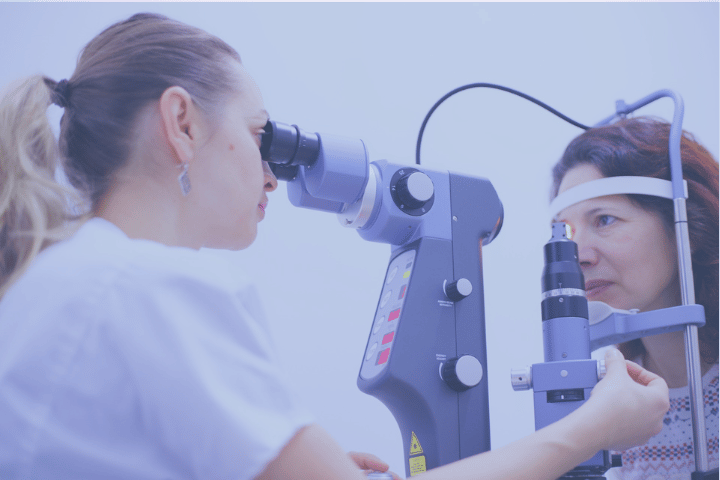New York Educators Certification Requirements
Certification Requirements for New York Educators
The New York State Department of Education requires educators to take some or all of these workshops
for their certification requirements:
Take our highly-rated NYSED workshops for New York educators to meet the certification requirements. When you complete the workshops, we report to TEACH automatically for you.

At Your Own Pace
Start and stop from different devices.
Instant Certificates
Plus, we report to TEACH for you.
Access for One Year
Go back to reference and download materials.
Trusted by over 35,000 Professionals
Hear from our customers:
“The organization and the clear description for each topic helped me retain information easily.”
“The voice over of the slides helped me feel as if I was in the physical workshop.”
“The quizzes helped me make sure I was synthesizing & retaining the most important information.”
Find Professional Development for New York Educators

STIs in the Eyes – Round 1, Chlamydia
Chlamydia trachomatis is a gram negative, obligate intracellular bacterium that can manifest in ocular tissue in three forms which include trachoma, neonatal inclusion conjunctivitis, and adult inclusion conjunctivitis. Trachoma is the number one cause of infectious vision loss worldwide accounting for 1.4% of blindness worldwide. Neonatal inclusion conjunctivitis can be spread vertically from mother to child during vaginal birth and can evolve systemically into pneumonia. Chlamydia is the most frequently reported sexually transmitted infection in the United States and is often asymptomatic, however, symptoms do occur when patients manifest the infection as conjunctivitis. Interprofessional collaboration to implement prophylactic treatments, screenings, and treatment when detected enhances the care the patient receives and may prevent further infectious spread.

Teenage Turbulence – Screening and Treatment for Substance Use Disorder in Adolescents
This training aims to increase the understanding and effective management of Substance Use Disorder (SUD) in adolescents and discusses the health burden and cost that SUD imposes on them. The screening process is examined along with an array of tools used to detect the disorder in its early stages; including an in-depth review of the SBIRT (Screening, Brief Intervention, and Referral to Treatment) process. Various treatment options are covered. The role of the interprofessional team in managing and treating SUD in adolescents is explored. Participants will understand how physicians, mental health counselors, school educators, nurses, social workers, and addiction specialists can collaborate to provide effective treatment.

Why Won’t This Wound Heal? Evidence-Based Management of Non-Healing Wounds
This one-hour Continuing Education (CE) event delves into the intricacies of managing non-healing wounds, providing healthcare professionals with evidence-based insights and strategies. Led by an expert wound care nurse practitioner, the session will explore the multifaceted factors influencing wound healing and equip participants with the knowledge to collaborate effectively with clients for optimal wound recovery.

The Family Tree of Comorbidities for Adults with ADHD
This course will help healthcare providers explore the intricate landscape of adult-diagnosed ADHD and its associated comorbidities. Students will delve into the presentation of adult-diagnosed ADHD, dissect assessment considerations for prevalent comorbidities, and learn to craft evidence-based treatment plans tailored to address the complexities of concurrent conditions. Discover the pivotal role of interprofessional collaboration in supporting individuals with adult-diagnosed or under-treated ADHD, fostering a holistic approach to patient care.

Growth, Grace, and Guidance – Supporting Girls Through Puberty
The course aims to provide a comprehensive understanding of the significance of puberty in adolescent girls on their mental health. Knowledge and skills to support girls through this transformative period will be shared. Content combines theoretical knowledge with practical strategies, fostering a holistic understanding of adolescent development and promoting the delivery of patient-centered care. Participants will gain valuable insights into addressing the unique challenges faced by adolescent girls during puberty and develop skills to enhance their support through interprofessional collaboration.

Wound Care – Dressings 101
This comprehensive course on wound dressing and topical wound management aims to equip healthcare professionals with an in-depth understanding of various dressing categories, specific dressing types, and advanced modalities essential for effective wound care. Through a combination of theoretical knowledge and practical applications, participants will learn to address diverse wound scenarios and optimize healing outcomes.

Red Alert – Effective Management of Postpartum Hemorrhage
This course is for healthcare professionals involved in maternity care aiming to enhance their understanding and skills in addressing postpartum hemorrhage (PPH), a critical obstetric emergency. The content equips participants with a thorough understanding of the causes, risk factors, preventive strategies, and practical interventions necessary for the effective management of postpartum hemorrhage, thereby enhancing their ability to provide timely and competent care to birthing people during the critical postpartum period.



